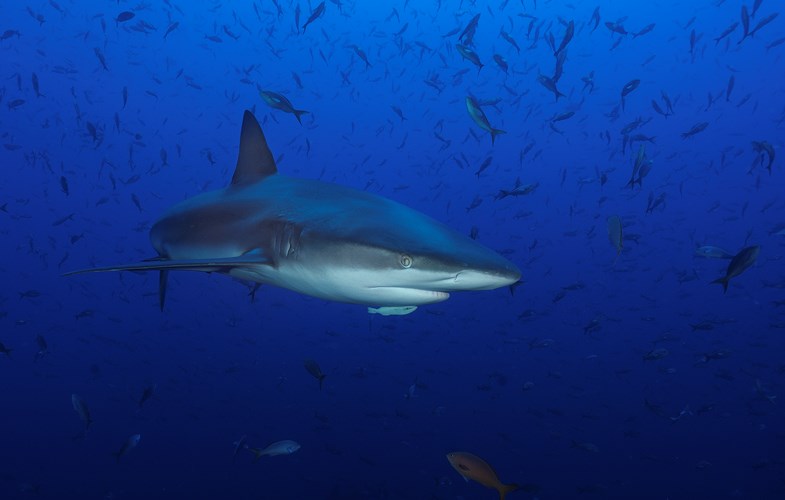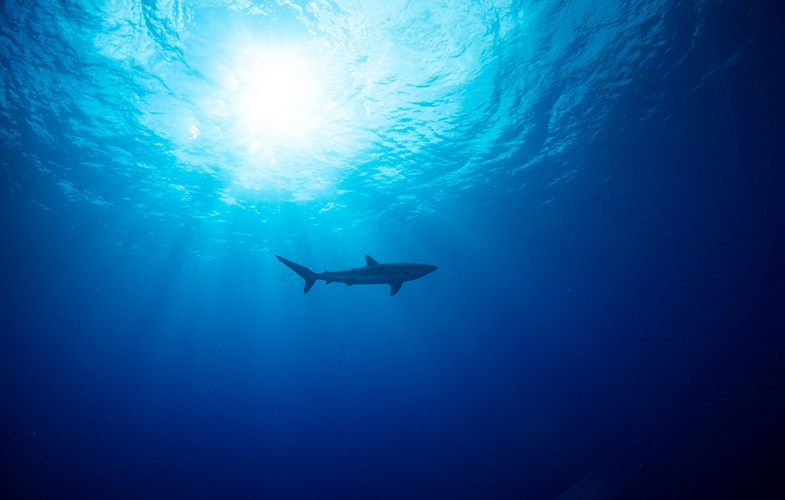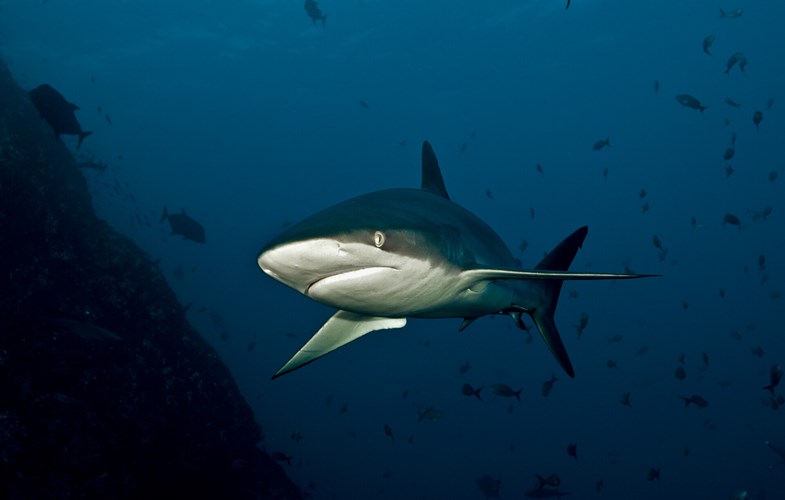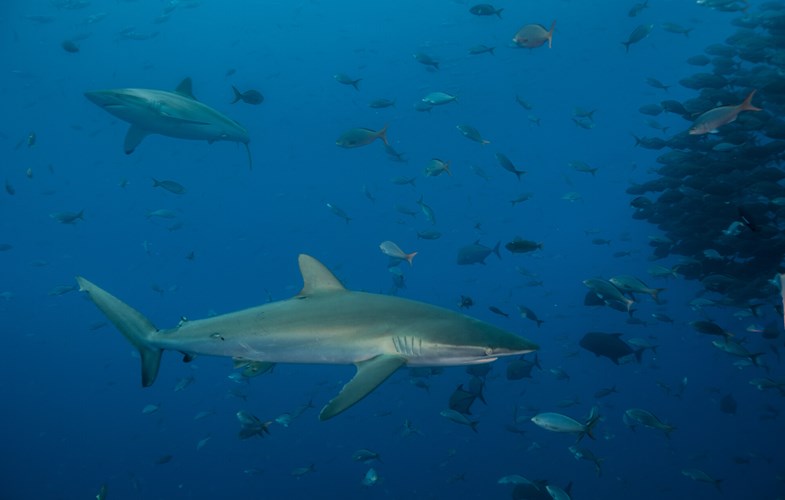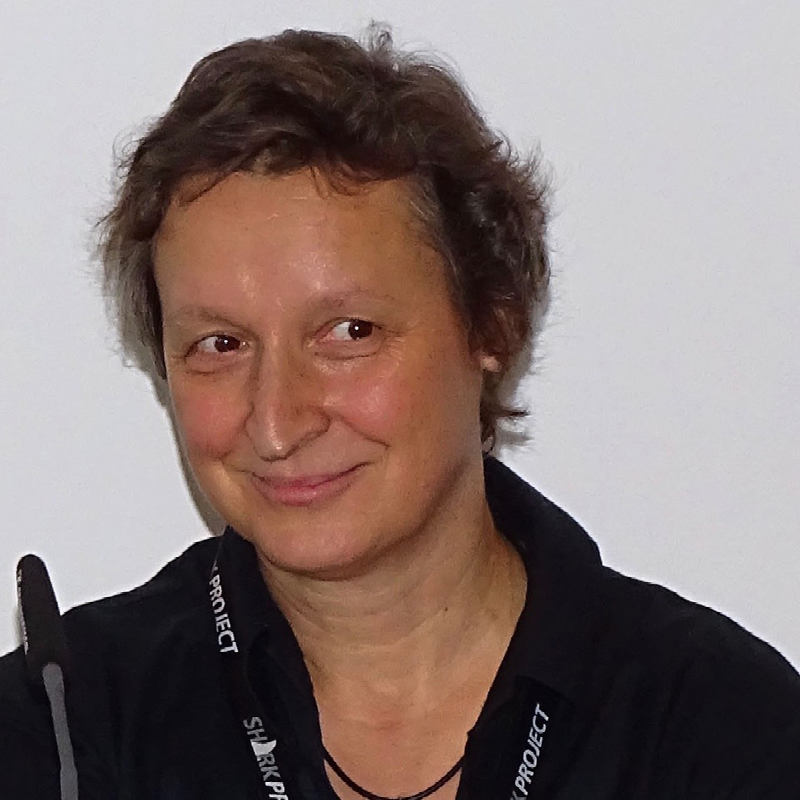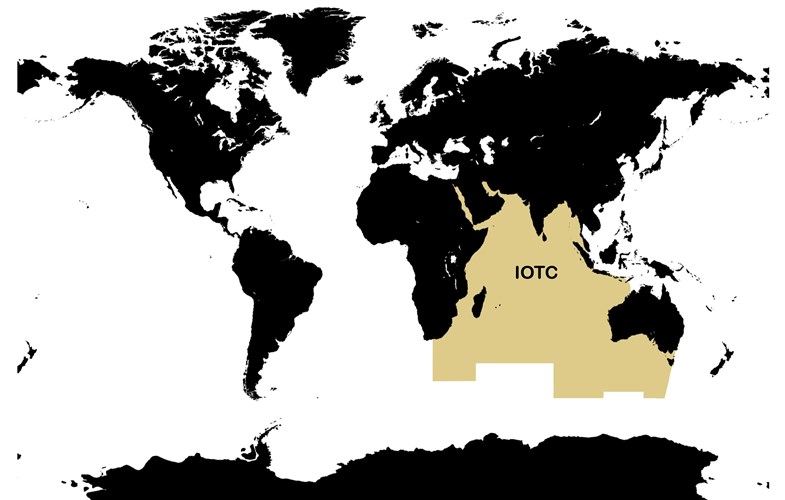

Our demand for ecosystem based reform of fishery management at IOTC
Accredited Observer at the Indian Ocean Tuna Commission
In the Indian Ocean, sharks are caught by both industrial and small-scale fisheries, with literally no catch limits and little reporting of catch levels. This results in a massive underestimation of the true impact of fishing on shark populations, unknown or uncertain stock status for most shark species, and a great deal of uncertainty in compliance with the few measures that do exist. Even worse, this constant lack of data prevents much-needed conservation measures from being adopted and implemented by members because no precautionary approach is being used, and shark species are not being effectively managed.
How can this vicious cycle be ended?
Read the latest scientific articles and reports
Position Statement on the Outcome of the 27th Session of the Indian Ocean Tuna Commission (May 8th – 12th 2023)
IOTC Commission Meeting once again shuttered hopes for sharks, despite the courageous leadership of coastal states
SHARKPROJECT supports the decision of the Maldives to withdraw their proposal in view of the unwillingness of parties to agree on the proposed improvements for sharks. We are disappointed to see that EU, Japan, and China prevented the measures being adopted claiming lack of scientific advice. We therefore call on the Scientific Committee to prepare clear scientific advice to improve shark conservation measures for the next Commission meeting in 2024, at which time those measures must be adopted and swiftly implemented. Further delays to these conservation measures are unacceptable, and have in fact been overdue for many years, if not decades.
2023 - Comments at the 6th Special Session of the IOTC on improvements needed in the management of DFADs
2022 - Sharkproject contribution to IOTC working groups in 2022
2022 - Report by Sharkproject as part of the IOTC Working Groups in 2022
2022 - Position Paper for the 26th Meeting of the IOTC
We call for an end to IOTC inaction on shark conservation because it still cites a lack of sufficient data as an excuse for a lack of conservation action. The data is lacking because many member states inadequately report their catch and bycatch of sharks. Therefore, lack of data must no longer be used as an excuse. We sent our demands to the IOTC and also repeated them in our interventions during the meeting.
Goal
- shark-specific demands such as "Fins Naturally Attached"
- improved transparency through independent monitoring (by human observers combined with electronic systems),
- full reporting of all catches and bycatch,
- public availability of fishery-specific bycatch data for each catcher vessel,
- as well as improving the selectivity of the fishing gear used to reduce shark bycatch in particular.
Our main concern is that the primary goal must always be to avoid or at least significantly reduce bycatch of unwanted species (e.g. sharks, marine mammals, seabirds, and sea turtles), as this is the best option for the survival of the affected species, most of which are already endangered, critically endangered, or even threatened with extinction. Only then come measures to reduce the mortality of the bycatch through so-called "best handling practices" at release, which can be achieved through technical measures on board, repeated training of the crew and a constant review and improvement of both.
Members at IOTC:
Australia, Mauritius, People's Republic of Bangladesh, Mozambique, China, Sultanate of Oman, Comoros, Pakistan, Eritrea, Philippines, European Union, Seychelles, France (OT), Somalia, India, Sri Lanka, Indonesia, South Africa,, Islamic Republic of Iran, Sudan, Japan, Tanzania, Kenya, Thailand, Republic of Korea,United Kingdom of Great Britain and Northern Ireland, Madagascar, Yemen, Malaysia, Maldives
Links:
Project history
March until September 2020
SHARKPROJECT receives accreditation as an observer at IOTC
